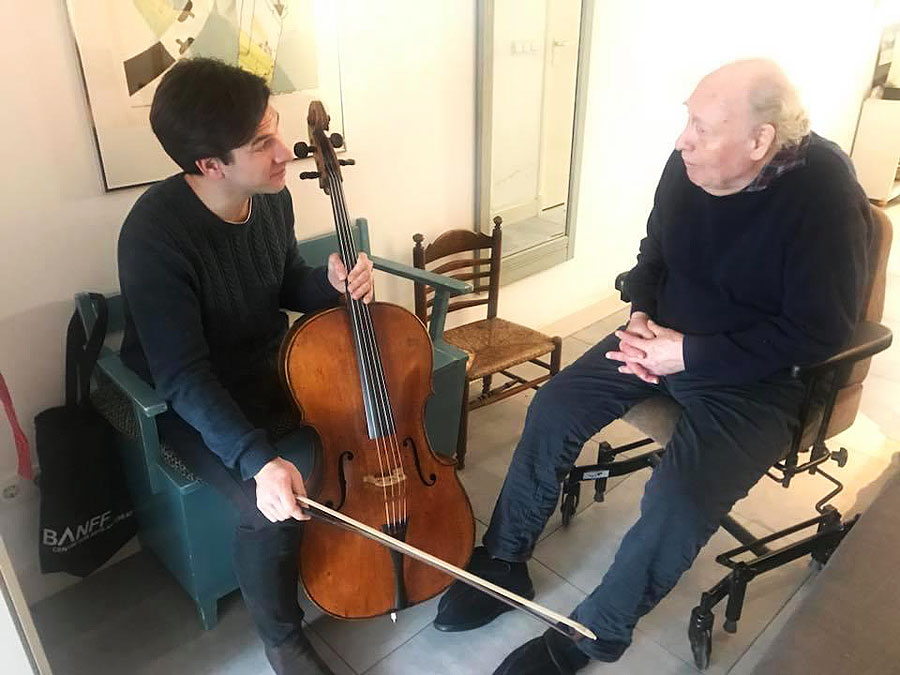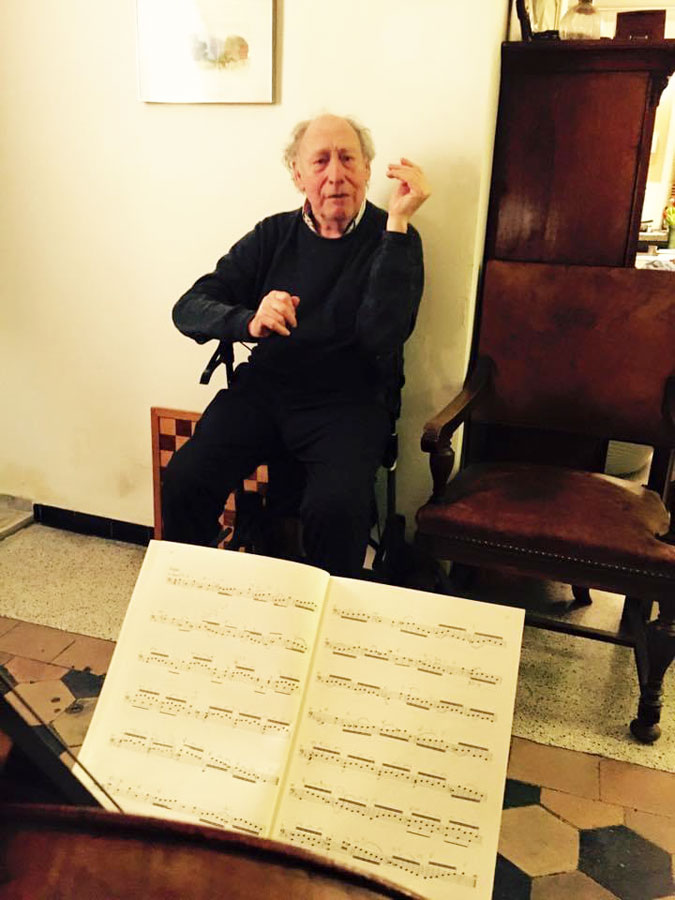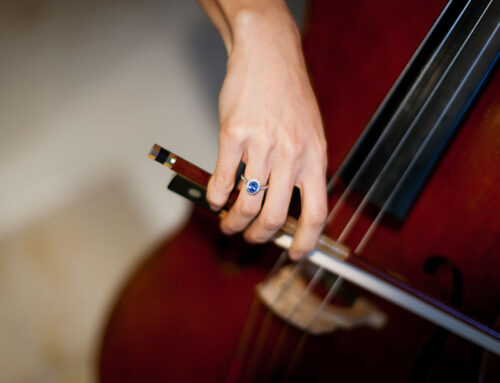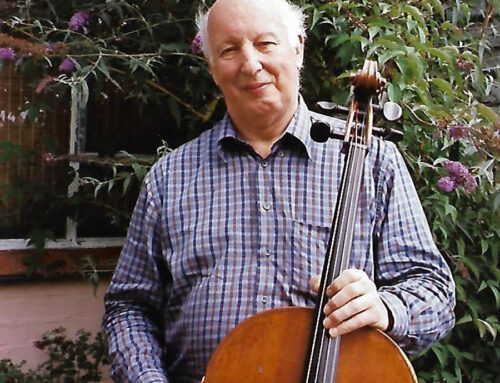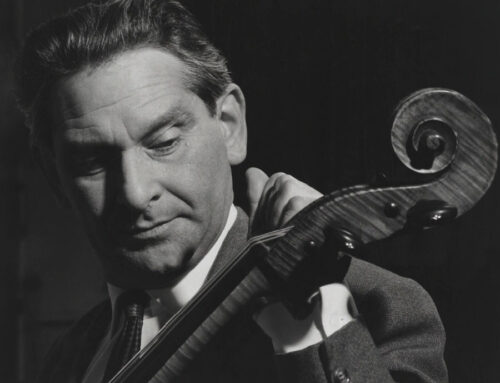What did I take away from Anner Bylsma?
JS Bach’s D minor Suite: Examples and key points from a session in Amsterdam*
This page accompanies a tribute article by Guy Johnston which appears in the Autumn 2020 issue of the LCS Newsletter. Read the tribute excerpts here.
NB: We recommend reading this with your copy of the Bach Cello Suites in hand.
Examples
Prelude
Play this bar as if you’re looking over your shoulder (bar 6 of the Prelude).
Think of the poor homeless man sitting behind Naples Cathedral (leading into bar 37 of the Prelude).
Energy in notes leading towards emphatic cadences (bar 47-48 of the Prelude).
Looking for something with a lamp (final bars of the Prelude).
Chords at the end of the Prelude might be there because someone knocked at the front door…the performer will know what to do.
Allemande
Musical puddles! – timing at certain points (perhaps a comma between each 4-note grouping in measure 26 of the Allemande).
Courante
The bayonet for the dissonance! (D# in Bar 15 of the Courante).
Sarabande
Know when to let go of lower neighbour/family member in chords (first bar of the Sarabande).
Bowing magic – use the bridge to highlight a melody or dissonance. Know when to release the bow (2nd bar in the Sarabande – feel the 2nd beat, stress and release).
Menuets 1 and 2
Hear the bass note (progression) first in chords and respond with inner and upper voicing (throughout Menuet I).
General Key Points
I don’t hear the word, play it again.
Avoid consecutive up or down bows.
No need for the bow to leave the string.
Communicate like a Minister in the pulpit.
Listen to your audience when you perform.
Void beats – a sniff or lick of saliva on the corner of the mouth, then move on! (dotted notes in general).
Rhetoric throughout.
Punctuation – consonants.
Repeats can be upside down in bowing.
Keep a note you’ve played down whilst playing the next for an acoustic effect and a chance to hear more harmony (senza basso).
Careful not to accent upbeat gestures like an 8th note before a chord for example.
Try not to shift inside a slur – slurs are generally organised to help the hand move from one position to another.
Use the open string in places to allow hand to recover and move to new position.
Secret guide note held during shifts on neighbouring string.
Implied bass line – always know what note would be there if supported by continuo. It changes everything.
Inegale
Rubato – inner freedom – nothing even.


